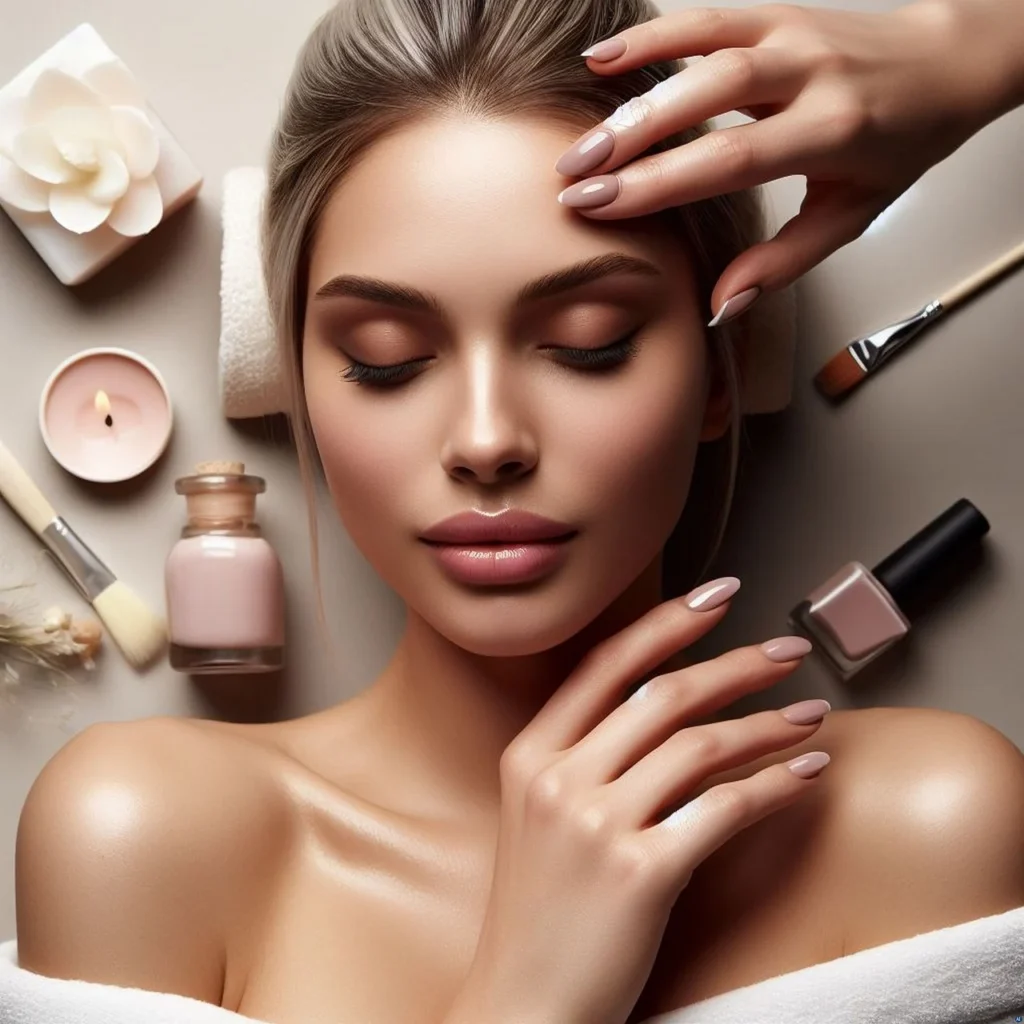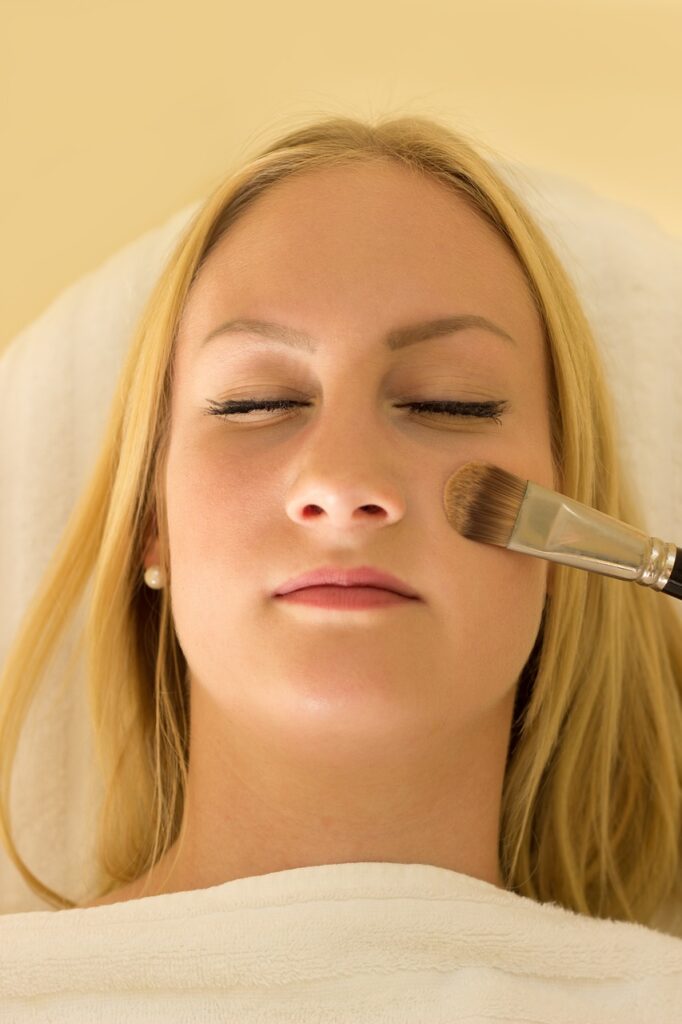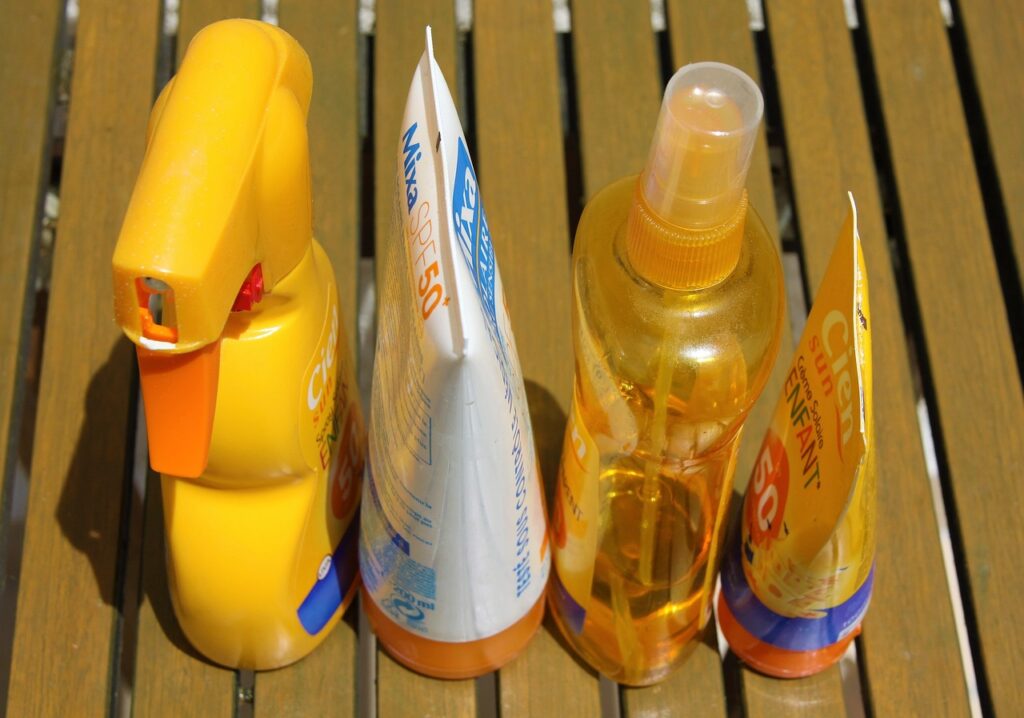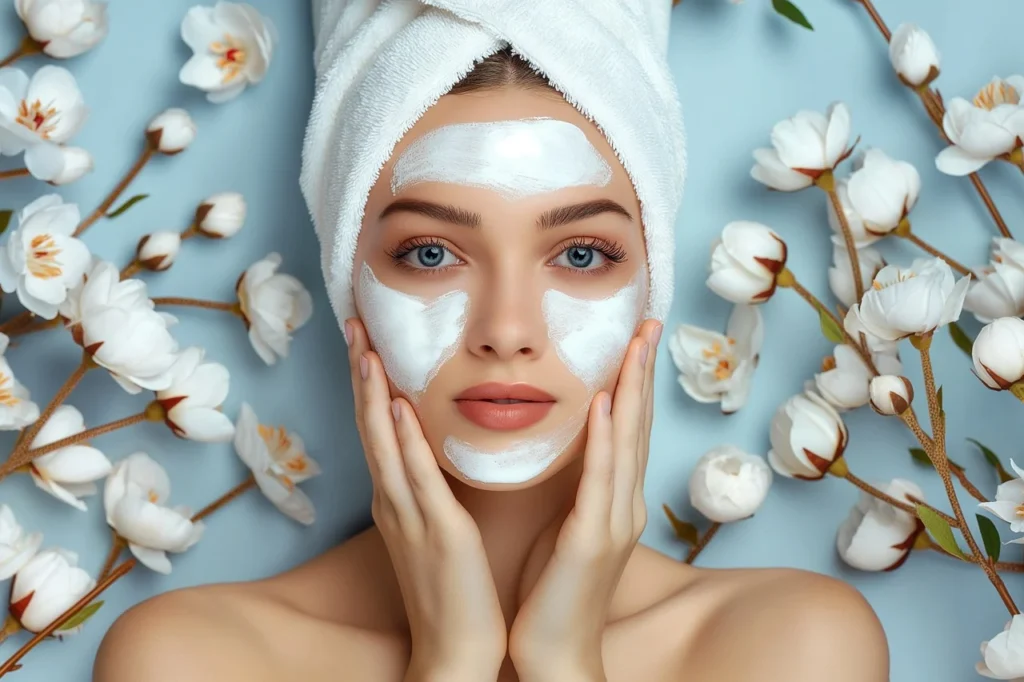Healthy, glowing skin isn’t just about looking great; it reflects good health and a balanced lifestyle. With a few consistent habits, you can achieve radiant skin, no matter your skin type. Here are ten essential skincare tips to help you on your journey to a naturally beautiful complexion.

Know Your Skin Type (Skincare)
The first step in any skincare routine is understanding your skin type. Skin is generally classified as normal, oily, dry, combination, or sensitive. Knowing your skin type helps you choose products that are best suited for your needs and avoid ingredients that may trigger irritation or imbalance.
- Normal Skin: Balanced, neither too oily nor too dry.
- Oily Skin: Produces more oil, prone to acne and enlarged pores.
- Dry Skin: Lacks moisture, may feel tight or flaky.
- Combination Skin: Has both oily and dry areas, usually oily in the T-zone (forehead, nose, chin).
- Sensitive Skin: Easily irritated, may react to products with redness or itching.


Cleanse Gently, But Thoroughly
Cleansing is crucial to remove dirt, makeup, and impurities. Use a gentle cleanser that suits your skin type, and avoid harsh soaps that can strip away natural oils. Cleansing twice daily—once in the morning and once before bed—is typically enough. (Skincare)
For an extra deep cleanse, consider double-cleansing at night: start with an oil-based cleanser to remove makeup, followed by a water-based cleanser to remove any remaining impurities.


Exfoliate Regularly, But Don’t Overdo It
Exfoliation removes dead skin cells, leaving your skin brighter and smoother. However, it’s important not to overdo it, as excessive exfoliation can irritate and damage the skin barrier. For most skin types, exfoliating 1-3 times per week is ideal.
Choose an exfoliant based on your skin’s needs:
- Physical Exfoliants (scrubs): Effective but can be abrasive. Use with caution, especially if you have sensitive skin.
- Chemical Exfoliants (AHAs, BHAs): These dissolve dead skin cells and are gentler on the skin. AHAs are great for dry or aging skin, while BHAs work well for oily, acne-prone skin.


Hydrate Inside and Out
Moisture is essential for healthy skin. Drink plenty of water throughout the day to keep your skin hydrated from within. Additionally, use a moisturizer suited to your skin type after cleansing. Moisturizers not only hydrate but also help lock in moisture and support the skin’s barrier.
Look for key hydrating ingredients like:
- Hyaluronic Acid: Holds up to 1,000 times its weight in water.
- Glycerin: A powerful humectant that attracts moisture.
- Ceramides: Help restore and protect the skin’s natural barrier.

Don’t Skip Sunscreen
Daily sun protection is one of the most important steps in a skincare routine. Exposure to UV rays accelerates skin aging, increases the risk of skin cancer, and can cause hyperpigmentation. Apply a broad-spectrum sunscreen with at least SPF 30 every morning, even on cloudy days or when staying indoors near windows.
If you spend a lot of time outdoors, remember to reapply sunscreen every two hours and wear protective clothing, hats, and sunglasses.

Be Consistent With Your Routine
Achieving healthy, glowing skin takes time and consistency. A simple routine—cleanse, moisturize, and protect with sunscreen—done regularly is more effective than an elaborate regimen that you can’t keep up with. Start small, observe how your skin responds, and then gradually introduce new products if needed.
Eat a Balanced Diet for Skin Health
Your diet plays a major role in skin health. Foods rich in antioxidants, vitamins, and minerals can improve your complexion and combat skin issues. Focus on:
- Vitamin C-rich foods (citrus fruits, berries) to boost collagen production.
- Healthy fats (avocado, nuts, olive oil) to support the skin barrier. (Skincare)
- Leafy greens and colorful veggies for antioxidants to fight free radicals. (Skincare)
Avoid excessive sugar and processed foods, as these can increase inflammation and contribute to breakouts and dull skin. (Skincare)

Get Plenty of Sleep
Quality sleep is essential for skin repair and regeneration. When you’re well-rested, your skin cells can renew and heal more effectively, giving you a healthier complexion. Aim for 7-9 hours of sleep per night and try to maintain a regular sleep schedule. (Skincare)
Sleep on a clean pillowcase and avoid sleeping on your face to prevent unnecessary pressure and friction on the skin. (Essential Skincare Tips)
Manage Stress
Chronic stress can negatively impact your skin, triggering breakouts, inflammation, and premature aging. Incorporate stress-reducing activities into your daily routine, such as:
- Exercise: Helps improve blood circulation and reduces stress hormones.
- Meditation and Deep Breathing: These can reduce anxiety and improve overall well-being.
- Journaling or Creative Outlets: A great way to express yourself and release stress.
By managing stress, you can keep your skin calm and reduce stress-related skin issues.

Avoid Touching Your Face
Our hands carry oils, dirt, and bacteria that can easily transfer to our face, leading to clogged pores and breakouts. Try to avoid touching your face throughout the day, and always wash your hands before applying any skincare products. (Skincare)
Similarly, keep your phone, sunglasses, and other items that come into contact with your face clean, as they can harbor bacteria and irritants. (Skincare)
Conclusion
Achieving healthy, glowing skin is about adopting a consistent skincare routine and making lifestyle choices that support skin health. By following these essential tips, you’ll be well on your way to a complexion that feels and looks its best. Remember, skincare is a journey, and small, regular steps often lead to the most beautiful and lasting results.
What’s the best way to determine my skin type?
To determine your skin type, wash your face with a gentle cleanser and avoid applying any products. After an hour, observe how your skin feels: (Skincare)
Normal Skin: Feels comfortable, not too oily or dry. (Skincare)
Oily Skin: Appears shiny, especially on the T-zone (forehead, nose, chin). (Skincare)
Dry Skin: Feels tight or flaky. (Skincare)
Combination Skin: Has both oily areas (usually the T-zone) and dry areas. (Skincare)
Sensitive Skin: May feel irritated or itchy, often reacting to products. (Skincare)
Why is cleansing so important for skin health?
Cleansing removes dirt, oil, makeup, and impurities that can clog pores and lead to breakouts. It also creates a clean surface for other skincare products to absorb effectively. A gentle cleanse morning and night helps keep your skin healthy and clear.
How often should I exfoliate?
Most people benefit from exfoliating 1-3 times a week, but it depends on your skin type and sensitivity. Over-exfoliating can damage your skin’s barrier, so listen to your skin and adjust as needed. Sensitive skin may need less frequent exfoliation than oily or acne-prone skin.
What kind of moisturizer should I use?
Choose a moisturizer that matches your skin type:
Oily/Combination Skin: Lightweight, non-comedogenic, and oil-free formulas.
Dry Skin: Rich, hydrating creams with ingredients like hyaluronic acid or ceramides.
Sensitive Skin: Fragrance-free and hypoallergenic options with calming ingredients like aloe or chamomile.
Why is sunscreen necessary even on cloudy days?
UV rays penetrate clouds and glass, so your skin is exposed even on overcast days or indoors near windows. Daily sunscreen helps protect against UV damage, which causes premature aging, sunburn, and increases the risk of skin cancer.
How soon will I see results from a consistent skincare routine?
Results vary by individual and skin type, but with regular skincare, you may start noticing changes within a few weeks. It typically takes 4-6 weeks for cell turnover, so continue for at least a month before assessing the effectiveness of new products.
What foods are best for healthy skin?
Antioxidant-rich foods, healthy fats, and vitamins are great for your skin. Include:
Vitamin C (citrus fruits, bell peppers) for collagen support.
Healthy fats (avocado, nuts) to maintain skin moisture and elasticity.
Antioxidant-rich vegetables (spinach, kale) to fight free radicals.
Avoid excessive sugar and processed foods, as they can lead to breakouts and dull skin.
How does sleep impact my skin?
During sleep, your skin undergoes repair and regeneration. A lack of sleep can lead to dull skin, puffiness, and dark circles. Aim for 7-9 hours of quality sleep each night to support healthy, radiant skin.
How does stress affect my skin?
Chronic stress increases hormones like cortisol, which can trigger breakouts, inflammation, and accelerate aging. Reducing stress through exercise, meditation, or relaxation activities can help keep your skin calm and clear.
Is it really that important to avoid touching my face?
Yes! Touching your face can transfer oils, dirt, and bacteria, which can clog pores and lead to acne and irritation. Try to keep your hands away from your face and always wash them before applying any skincare products.
Can I combine these tips with my regular routine?
Absolutely! These tips are designed to enhance any routine. Start by incorporating one or two, like regular cleansing and moisturizing, then gradually add others, like sunscreen or stress management, for a well-rounded approach to skincare.
Are there any products I should avoid for healthy skin?
Avoid products with harsh ingredients that can irritate your skin, such as strong fragrances, sulfates, and alcohol-based products if your skin is sensitive. Also, be cautious with over-exfoliating products, as they can damage your skin’s barrier if used too frequently.



просування соціальних мереж замовити
rfuezn
Pingback: Chilis 10 Surprising Health Benefits: You Didn’t Know About
wla49p
I know this if off topic but I’m looking into starting my own weblog and was curious what all is required to get set up? I’m assuming having a blog like yours would cost a pretty penny? I’m not very internet smart so I’m not 100 certain. Any recommendations or advice would be greatly appreciated. Cheers